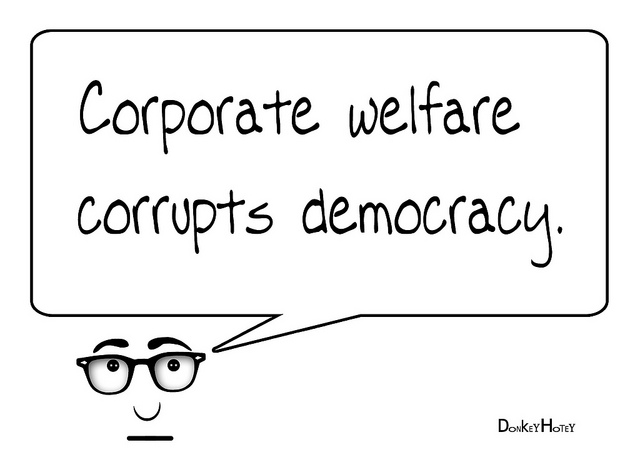
With the expiration of the Export-Import Bank in June, opponents of corporate welfare won a key victory against wasteful, unnecessary spending. Despite a concerted effort by big government advocates to reauthorize the bank, Congress has so far stood firm and refused to bow to special interests. However, the fight is not over and Ex-Im President Fred Hochberg remains determined to restore the bank when Congress returns in September.
In an August 12 letter, Hochberg signaled his “hope and determination” to ensure the bank is reauthorized once Congress returns in September. Listening to Hochberg, one could be forgiven for thinking the bank is a key pillar to the success of American small business overseas. His comments are the latest in a false narrative that exporters – especially small businesses –have no hope of competing overseas without Ex-Im.
But these scare tactics do not matchup with reality. For one, small businesses hardly rely on the Bank. According to information released by the White House, the Ex-Im Bank supported just 0.42% of exporters, 0.28% of small businesses and 1.9% of total exports between 2009 and 2014. Even Ex-Im’s definition of a small business is misleading. The majority of government agencies define a small business as having 500 employees or less, but Ex-Im defines a small business as having three times that number.
Even after inflating their numbers, most of Ex-Im’s loans still go to well-connected corporations that can easily compete without these government subsidized loans. Even worse, taxpayer funded loans often provide major foreign corporations with extremely attractive sales terms that give them an unfair advantage over American competitors.
Some of the bank’s activities in recent years include billions in loans to state owned companies in China, Saudi Arabia, and the United Arab Emirates and has financed energy projects for foreign companies in India and Papua New Guinea with terrible human rights records.
Worse yet, the bank’s loans have been involved time and time again with fraud and corruption, resulting in countless indictments and millions in lost taxpayer funds. Most recently, a report by the Department of Justice alleged that a Miami small business used Ex-Im to continue a Ponzi scheme after private loans dried up.
Given this record, it is clear that Ex-Im no longer serves the best interest of the American people.
Supporters of Ex-Im have already tried to attach reauthorization of Ex-Im to must-pass Highway Trust Fund legislation last month, despite the two issues being completely unrelated. When Congress reconvenes next month, it appears that supporters of Ex-Im will do all in their power to reauthorize the bank. When this inevitably happens, members of Congress must stand firm and refuse to finance corporate welfare.

